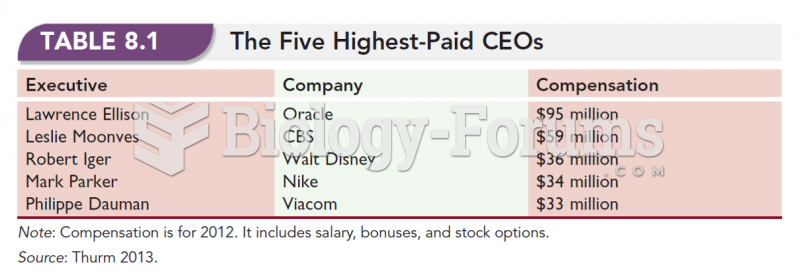|
|
|
Over time, chronic hepatitis B virus and hepatitis C virus infections can progress to advanced liver disease, liver failure, and hepatocellular carcinoma. Unlike other forms, more than 80% of hepatitis C infections become chronic and lead to liver disease. When combined with hepatitis B, hepatitis C now accounts for 75% percent of all cases of liver disease around the world. Liver failure caused by hepatitis C is now leading cause of liver transplants in the United States.
For high blood pressure (hypertension), a new class of drug, called a vasopeptidase blocker (inhibitor), has been developed. It decreases blood pressure by simultaneously dilating the peripheral arteries and increasing the body's loss of salt.
According to animal studies, the typical American diet is damaging to the liver and may result in allergies, low energy, digestive problems, and a lack of ability to detoxify harmful substances.
The U.S. Pharmacopeia Medication Errors Reporting Program states that approximately 50% of all medication errors involve insulin.
Blood is approximately twice as thick as water because of the cells and other components found in it.
 Large size can provide a refuge from predators. While young African elephants may be vulnerable to p
Large size can provide a refuge from predators. While young African elephants may be vulnerable to p
 The Red-bearded Bee-eater Nyctyornis amictus is a large species of bee-eater found in the Indo-Malay
The Red-bearded Bee-eater Nyctyornis amictus is a large species of bee-eater found in the Indo-Malay





